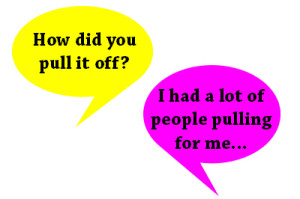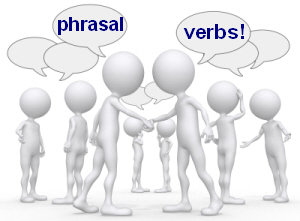Phrasal verbs are used CONSTANTLY in
spoken English… but they can be difficult to learn!

Native English speakers use phrasal verbs ALL the time when talking.
This can make spoken English difficult to understand, even if you’ve studied for a long time.
But phrasal verbs are hard to learn for three reasons:
1. The meaning is not always obvious from the words themselves
Ex) “slip up” = make a mistake
“pull off” = succeed despite difficulties
“give in” = finally agree to do something that a person is asking you, although you initially resisted
How are you supposed to know this from the words themselves?
2. Many phrasal verbs are very similar – and easily confused
 Ex) get off, get up, get over, get around, get along, get through, get out, get by, get on with, get ahead, get down to, etc…
Ex) get off, get up, get over, get around, get along, get through, get out, get by, get on with, get ahead, get down to, etc…
These all have different meanings!
3. A number of phrasal verbs have multiple definitions
Ex) “take off”
= remove (take off your jacket)
= when a plane leaves the ground
(the plane took off at 4:30)
= increase fast (sales have taken off this year)
= leave (I’m gonna take off – see you guys later)
What’s the best way to learn phrasal verbs?
Start with this 5-day mini-course – you’ll learn the different types of phrasal verbs and how each one functions in an English sentence.

Enter your e-mail to start learning Phrasal Verbs: |



